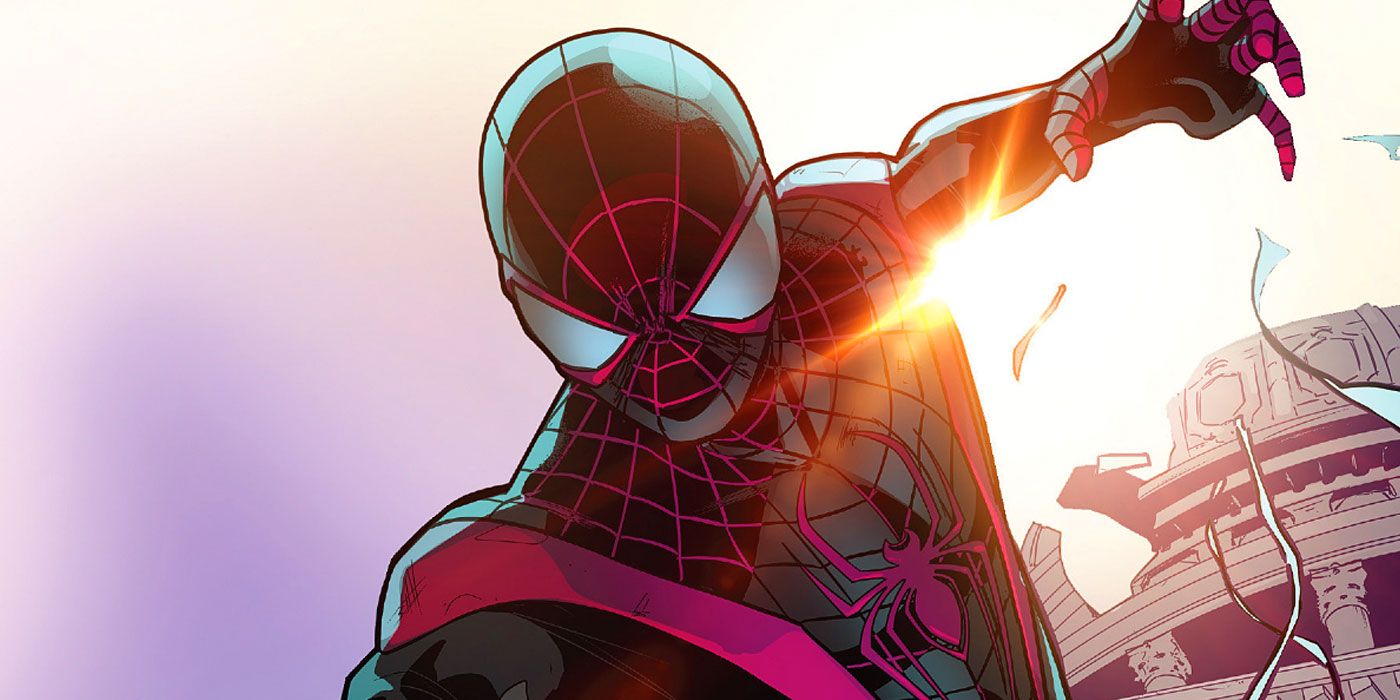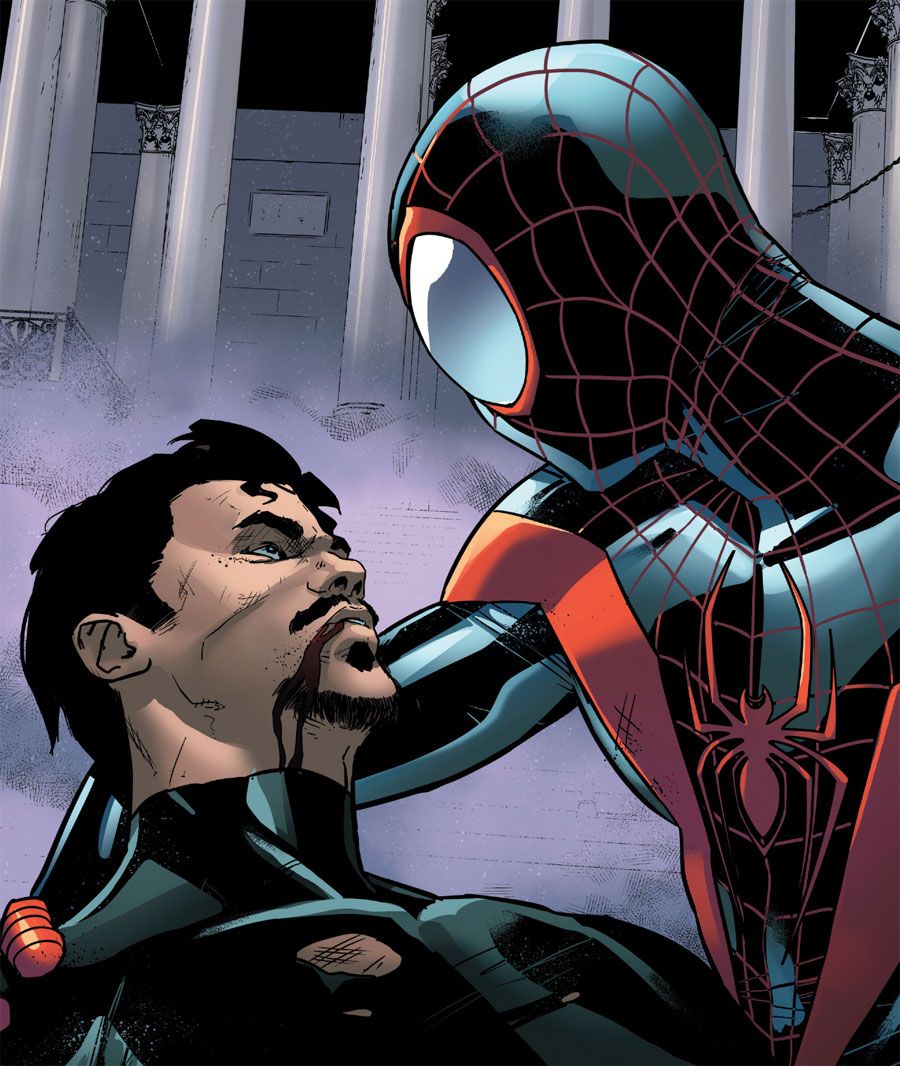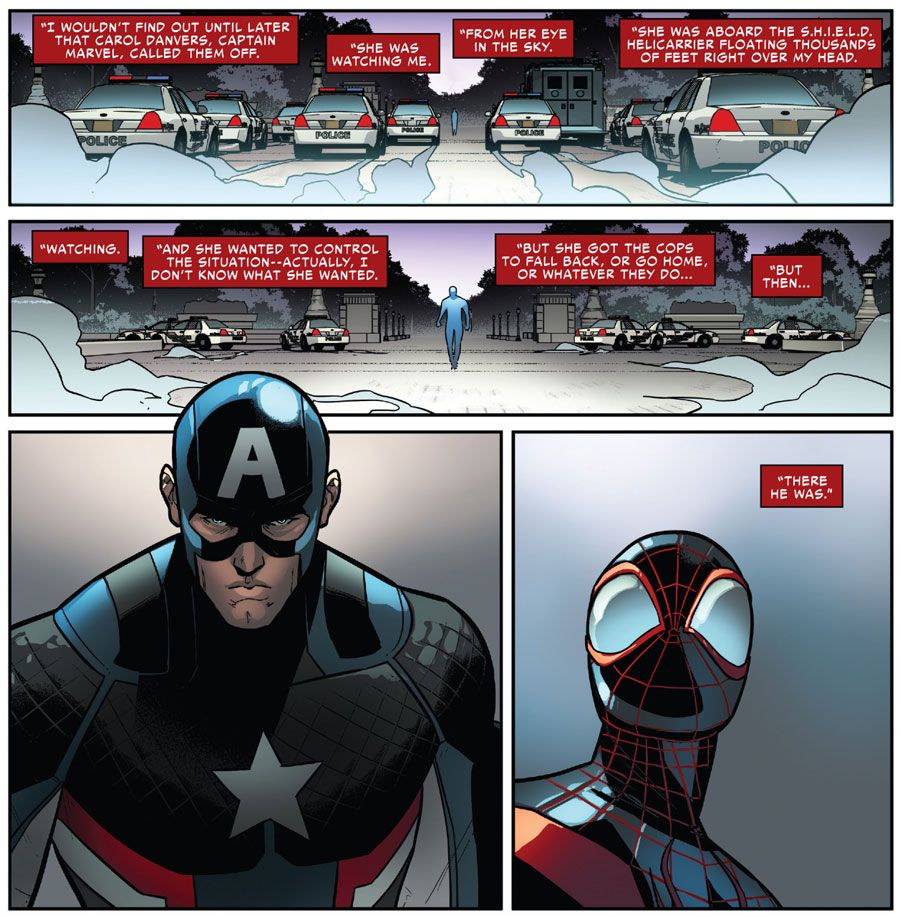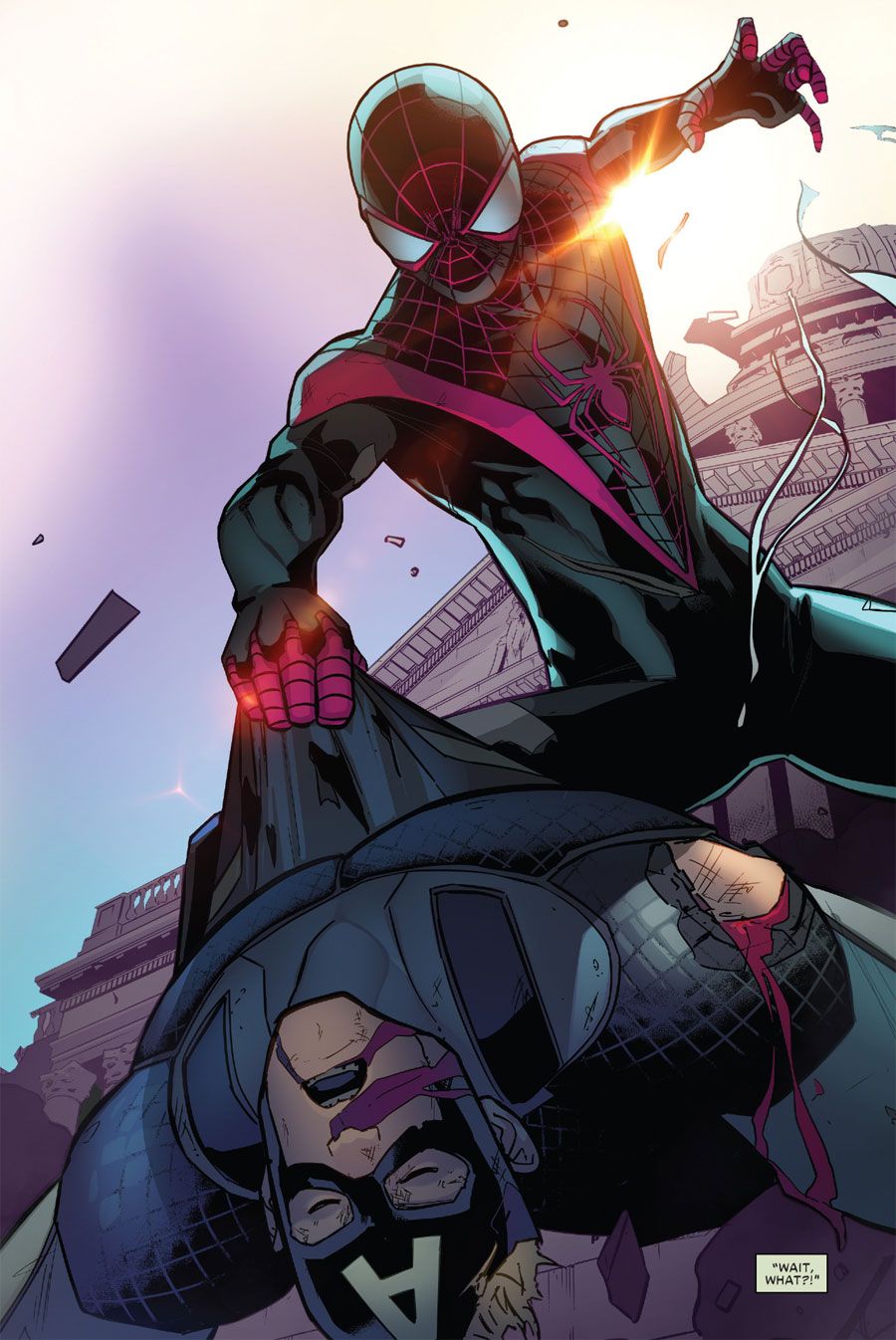SPOILER WARNING: The following article contains major spoilers for "Spider-Man" #10 and "Civil War II" #7, on sale now.
The events of "Civil War II" took an unexpected turn at the end of Issue #7, and writer Brian Michael Bendis elaborates on some of those events in "Spider-Man" #10, illustrated by Nico Leon. Miles Morales has returned to New York, now devastated not only by what might happen on the steps of the U.S. Capitol, but now also by what did. The fate of one character is all but confirmed, but a new spin is put on some of Miles' motivations leading up to the surprising twist. Miles himself also bares his soul to his friends, revealing an unknown side to his nature, while an offhand remark by Ganke may prove to be eerily prophetic.
RELATED: Civil War II: Why Ulysses Didn’t Foresee One Death, But May Cause Another
The Fate of Tony Stark
As readers saw in "Civil War" #7, Carol Danvers seemingly put an end to Tony Stark as Captain America and Miles looked on in disbelief. The climax to "Spider-Man" #10 seems to confirm that Tony was in fact killed by Carol in that fateful encounter, as Miles' recollection of those events reveal a final, silent moment between himself and Iron Man, where a seemingly lifeless Tony stares blankly into Miles' eyes. Whatever lies ahead for this month's conclusion of "Civil War II," it's apparent that Tony won't be a part of it.
Now a seeming martyr for his cause against exploiting the Inhuman Ulysses' precognitive abilities, the moral battle Stark launched in "Civil War" is anything but over. Miles' account of Tony's death in Washington is likely a galvanizing moment for not just Miles and Cap, but also their allies, and Carol's deadly actions could arguably even turn some of her own allies and friends against her. Carol's whereabouts immediately after Tony's passing – and Cap's, for that matter – aren't mentioned by Miles, but the immediate aftermath is a likely topic in "Civil War" #8.
RELATED: Civil War II Might Alter the Marvel Universe in Ways We Never Imagined
The Real Reason Mr. Morales Goes to Washington
When Miles was first seen at the foot of the Capitol Building (in actuality, not in Ulysses' vision) at the conclusion of "Civil War II" #6, it was presumed that it was a move initiated by him to forestall Ulysses' horrific prediction and prevent its occurrence. Miles had subsequently admitted to this, and while it still holds true, Bendis's script provides a deeper reasoning than had been revealed in the series: the young Spider-Man admits to a darker nature that has come close to consuming him in the past, a nature he believes is hereditary by way of his uncle's criminal ways, and even his own father's history.
Miles' sharing of this dark secret also reveals a whole different motivation for confronting Ulysses' vision head on: he didn't go to Washington to prove Ulysses wrong so much as he ventured there to prove himself wrong. This revelation brings a whole new dimension to Miles' reaction towards Ulysses' premonition; he's not only horrified to be revealed as the potential killer of an American hero, but also that his long-held fears regarding his possible fate just might be true. By his own admission, he states that he wants to be stopped should this darkness ever take hold; instead, he watches the same thing happen to another supposed hero, with the victim of that darkness dying at his side.
Could Ulysses Be Right?
If Miles, in fact, genuinely has the potential to turn criminal, then Ulysses' vision of Cap's death suddenly becomes a lot more plausible. Miles at one point describes how he kills Cap in the vision he experienced; he deliberately breaks Cap's neck, dispelling the notion that the cause of Cap's death was being impaled (which isn't shown in Leon's interpretation), or that it might have been some kind of accident, despite all appearances. The deliberation of Miles' potential act also calls into question the reason behind it: would Miles' actions be the result of Cap's possible outing as a lifelong Hydra agent, as has been speculated, or would he simply snap? Does Miles stand to become a villain in the Marvel Universe, at the end of "Civil War II," or perhaps even later?
With Tony Stark now definitively off the board, and Sam Wilson also filling the role of Captain America, the idea of Steve Rogers likewise being taken out of the Marvel Universe isn't all that far-fetched. Especially with the means to that end already shown countless times.
Ganke Lee – Inhuman? Detective? Lucky Guesser?
No one in the Marvel Universe has been given much of a reason to suspect that Captain America, the All-American hero, has secretly been a villain since before World War II. No one, that is, except for Miles' best friend Ganke, who puts forth this crazy-sounding theory in response to Miles' account of his confrontation with Cap. He dismisses it quickly, but whether that genie is one that remains in the bottle once put back is a story for another day, and it's only pushed into the background now that Tony's actual death will undoubtedly overshadow Cap's potential one.
On the surface, "Spider-Man" #10 is only a tie-in to "Civil War II." However, the potential ramifications from it loom as large as those in the main series, making it a 'must read' for those vested in the event's main storyline.




